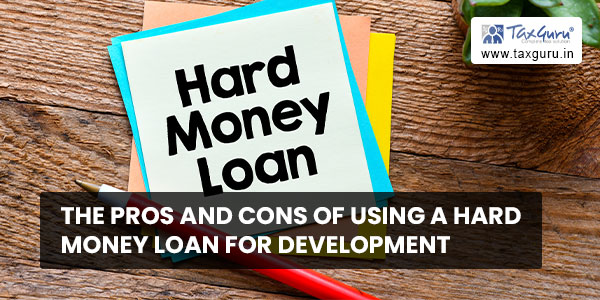#AD
Property investment isn’t as straightforward as it once was. With traditional banks hesitant to grant loans to those who want to invest in development projects, finding the money to invest can be hard, especially if your money is already tied up in other investments.
Investors are constantly on the lookout for financial solutions to develop their property. Borrowing money from a hard money lender is a popular option for those finding it difficult to get finance to develop real estate. However, before you start speaking to a hard money lender, you will need to understand the pros and cons of the service before taking out the loan.
Page Contents
Pro: Your Current Credit Rating Doesn’t Matter
If you don’t have a good credit rating at the moment, getting approval for a traditional loan for property development might seem impossible.
When applying for a hard money loan, you won’t have to deal with traditional banks, instead, you will be borrowing from an individual or group of lenders. You won’t have to provide them with a lot of information to get the loan approved, and they won’t be concerned about your poor credit score, or if you are up to your eyes in debt.
Hard money lenders are focused on the value of the property you are developing. The property will be used as an assist to help you get the loan approved, not your current financial situation. If you don’t want to use the property as collateral, speak to the lender about your options. They might accept residential property or other assets you might have as long as these assets are under your name. Hard money lenders are known to be more flexible than traditional banks, so organize a meeting to see what options are available.
Pro: Loan Approvals won’t take long
Even if you are confident a traditional bank will approve your loan, it might be too late. It can take months for a bank to approve a loan, which can prove frustrating if you need to get finance for the development project as soon as possible.
Some hard money lenders are known to approve loans within a short space of time. Those who need a quick injection of cash should consider speaking to a lender who is willing to approve a loan in a short space of time. For expert advice, check out this blog: A Loan Guide From A Georgia Lender.
Pro: No Down Payment
Most banks ask lenders to put down at least 5% of the loan before approving it, however, the majority of banks ask borrowers to put a lot more down. If you only have 5%, you might be forced to invest in mortgage insurance, which will increase the cost of the monthly mortgage payments.

If all your money is tied up, and you are still struggling to pay back other loans, you probably won’t have enough money for the down payment. Unlike traditional banks, hard money lenders will often give lenders finance, even without any down payment.
Con: The Cost
Borrowing from a hard money lender might seem like a fantastic opportunity for those in need of a quick injection of cash to continue developing a property, but unfortunately, there are some disadvantages that you want to think about before going ahead with the loan.
The interest rates when taking out a hard money loan tend to be a lot higher than traditional loans. These high-interest loans can put a lot of people off, especially those who need the money to develop a property. If they plan on selling the property once the development has been completed, the interest rates might take a big chunk of your profits.
Con: Risky
Taking a traditional loan is risky, but not as risky as borrowing money from a hard money lender. If you are worried that you might not be able to pay back the loan over a short period, you should look for an alternative.
Hard money lenders are often risk-takers, which is why they are in the business. It’s risky lending money to a person who is struggling to get a traditional loan, which is why they need to take the property or other assists until you have paid them back. If you find yourself struggling to make repayments, the lender might take the property you have been developing.
These are short-term loans, so the lender will expect you to pay them back the money as quickly as you can. If you struggle to sell the development after it has been completed, you might find yourself in financial difficulty, and hard to pay back the loan.




